|
It’s Holy Saturday. Jesus is dead; a boulder is in front of the tomb, and it is sealed. He is gone. So now what? What next? On Holy Saturday, my thoughts are with the apostles. Although Jesus foretold of his death, I’m not sure that they actually believed him or that they imagined it would consist of the sacrifice on the Cross. But Holy Saturday is when the reality hits them. Just imagine the millions of questions that they must have had. I imagine that they were similar to the ones above. “Now what? What next?” Imagining the disciples left with these unsolved questions, I start to realize that I too have had some questions when the going got tough or when I faced challenges, like on a recent mission trip. A few weeks ago, I had the privilege of accompanying 18 students from The Catholic University of America and two other staff members to the island nation of Jamaica for an alternative spring break cultural immersion trip. While in Jamaica, we visited several sites run by organizations like the Missionaries of Charity, the Missionaries of the Poor, and the St. Patrick’s Foundation. The most impactful day for me was the one I spent at Bethlehem House. Bethlehem House is a home for children with severe mental and physical disabilities. Of the eighty children who live there, only about twenty receive the occasional visit from their families. The rest of the children likely never see their families again. Most of them will also never be able to live on their own without significant medical assistance. The missionary in charge of the home asked if I would work with the older children, telling me that these children get the fewest visitors either by family members or by outside groups. “They need your love more than anyone else here,” he told me as he dropped me off in the room. It was just me, a caretaker (who only spoke Patois, a native language of Jamaica that is a mix of Scots and Creole) and the children. For the first hour, I didn’t know what to do. I was dumbfounded, heartbroken, and depressed by their situation. I could barely even crack a smile, let alone laugh. I didn’t understand the joy that others had talked about working with this group of children. I was aimlessly walking around the room, wondering, “What next?”. As one hour turned into two, one of the children woke up from a nap. He shouted from across the room “Hey! Hey you!” I looked at him and he said, “Come here and pick me up!” Still dumbfounded, I walked over to his crib and picked him up. He quickly told me that his name was Ashanti. Ashanti was one of the few children who was able to have a full conversation. He had such severe scoliosis that he was paralyzed from the waist down and had a lump in his back. Ashanti also had an enlarged, misshapen head. After about five minutes of walking around and talking with me, he grabbed my beard and declared that I was his best friend. He smiled and let out the most infectious laugh I have ever heard! In that moment, I knew that I was not looking just at Ashanti’s face, but at the very face of Jesus laughing and expressing joy. I learned more about love in those five minutes then I had learned in years. The rest of my day at Bethlehem House was full of joy, even in the midst of such extraordinarily difficult circumstances. In reflecting about that day, I think about the apostles on Holy Saturday who had locked themselves away in the Upper Room, unsure of what was next. They wondered and waited. But Easter did come, and their joy returned. The face of Jesus did appear again, just as it had for me in my experience with Ashanti. After Easter and with that joy, the apostles went out into the world proclaiming the Gospel. We too are called to encounter Christ in the joy of Easter and spread the Gospel message. More often than not, our days are like Holy Saturday. We experience days when all seems lost and hope seems foolish. But we must resist that temptation, resist the idea that hope will not return, that joy is lost forever. We know that Easter is coming and will always come. Joy will have its triumph. And it can be shared and experienced by all those we encounter. So on this Holy Saturday, let us be like the apostles and go out into this world after experiencing the joy that awaits us on Easter Sunday! For more Lenten and Easter resources, please click here.
0 Comments
I am out of practice. Although I spend what feels like hours and hours each week writing papers, I am out of the habit of writing for pleasure. As a seminarian in my first years of theology studies, I am not yet crafting homilies. What was once an enjoyable and relatively easy undertaking now feels rather rigid and forced. Our spiritual lives also ebb and flow. At times, perhaps our prayer life or growth in virtue seems enjoyable and relatively easy. At other points, it can feel rigid and forced. As we enter into Holy Week, I am reminded of the continuing conversion that must happen in my own life. What has the task of this now-past Lenten journey taught me? It has taught me that nothing in the spiritual life should be forced. Discipline is important, and hopefully the forty days of Lent have strengthened each of us in our resolve to turn to the Lord in prayer during the course of each day. Saint Elizabeth Ann Seton, the first American-born saint, wrote, “We must pray without ceasing, in every occurrence and employment of our lives—that prayer which is rather a habit of lifting up the heart to God as in a constant communication with Him.” Hopefully this season of preparation has strengthened our habit of prayer in the way that Saint Elizabeth spoke of. When we pause to recognize the stirrings in our heart that come from a genuine encounter with the Lord in times of prayer, it can often be surprising to take stock of the promptings of the Holy Spirit. “Here is the true gift of the Father,” said our Holy Father Pope Francis. “Man knocks with prayer at the door of God to ask for grace. And he, who is Father, gives me that and more: a gift, the Holy Spirit.… We must learn to knock on the heart of God! And we learn to do it courageously.” When we are bold and courageous in our prayer, we draw even closer to God—Father, Son, and Holy Spirit. As we look ahead to the remainder of Holy Week, how can we enter more fully into the great mysteries and events that the Church commemorates this week? First and foremost, we should not forget to pray! The time of preparation for Easter is still upon us; we pray with a real and sincere Christian hope. “To come to know God—the true God—means to receive hope,” wrote Pope Emeritus Benedict XVI in Spe Salvi. We should pray with fervent hope to come to know the living and true God during these final days of preparation for Easter. For more Lenten and Easter resources, please click here. For more resources on prayer, please click here. For some, Palm Sunday was a political event surrounding a political person that led to the greatest, most unexpected revolution the world has ever seen happen. Historically, the week leading up to Jesus’ Passion would have been the time of preparation for Passover, when many Jews from all the surrounding villages were in Jerusalem together. The gospels (Mt 21: 1-11) describe Jesus’ triumphant entrance into Jerusalem to the swaying of palm fronds and shouts of “Hosanna!” These were unmistakable prophetic signs of the Messiah-king, the one many Jews expected would finally overthrow their Roman overlords and re-establish Israel’s reign on earth, perhaps even violently—as a group called the “Zealots” expected. Yet there is a further symbol to this story: Jesus riding on a colt or ass, the sign of a humble and meek king. Jesus did not become the king they expected, but instead, the one God wanted. As Pope Francis said in his 2016 homily on the Feast of Christ the King, “The Gospel in fact presents the kingship of Jesus as the culmination of his saving work, and it does so in a surprising way. ‘The Christ of God, the Chosen One, the King’ (Lk 23:35,37) appears without power or glory: he is on the cross, where he seems more to be conquered than conqueror.” Like Jesus’ followers then, today we are susceptible to temptations of limited expectations. It is possible to see Jesus merely as a political and ethical teacher who died a martyr’s death and nothing else. On the other hand, we might project Jesus’ kingdom to a purely “other-worldly” realm. Since Jesus apparently wasn’t setting up his kingdom on earth (so we assume), we are tempted to sanitize Jesus of any “worldly” political or practical implications, and simply assume political engagement has limited place, or even runs counter to our task of evangelization. As Pope Pius XI wrote in his establishment of the Feast of Christ the King, “It would be a grave error…to say that Christ has no authority whatever in civil affairs, since, by virtue of the absolute empire over all creatures committed to him by the Father, all things are in his power…although he himself disdained to possess or to care for earthly goods, he did not, nor does he today, interfere with those who possess them.” Both interpretations—that Jesus was strictly political or that his work was merely “not of this world”—fail to take seriously not only Jesus’ public ministry and preaching, but the truly earth-shattering consequences of Jesus’ kingship won at the cross. The Catechism of the Catholic Church states that Christ, “exercises his kingship by drawing all men to himself through his death and Resurrection.” Jesus’ death and Resurrection are, simply, God’s victory over the world’s powers of sin and death so as to bring about the restoration of God’s people. To say yes to Jesus’ Resurrection is to say yes to life as part of a new creation and kingdom that starts now. Paschal faith involves the risk of making mistakes, being misunderstood or ridiculed, of not conforming to the expectations of the surrounding culture in order to expect something greater. It involves joining in the kingship of Christ in serving others, something we are able to share in as a result of our baptism. As powers of sin and death today loom heavy on our hearts, it is not enough to “have faith” but to do nothing. Following Christ calls us to witness to our faith in practical ways with full conviction because of Christ’s own experience of suffering, death, and Resurrection that has transformed our fundamental orientation to the world. As Christians, we desire peace, healing, reconciliation, and restoration. We serve our King by building up his kingdom on earth. Pope Francis challenges us, “A people who are holy…who have Jesus as their King, are called to follow his way of tangible love; they are called to ask themselves, each one each day: “What does love ask of me, where is it urging me to go? What answer am I giving Jesus with my life?” For more Lenten and Easter resources, please click here. Can you sense something’s coming? Throughout Lent, we’ve had the opportunity to empty ourselves in prayer, fasting, and almsgiving; we have mirrored Christ’s journey in the desert after His baptism. These past forty days have called us to remember to turn to God for His grace in our lives and for a spiritual renewal to cleanse us of all that distracts us from Him. While pouring ourselves out spiritually takes time to occur and be effective, so too should we scrutinize how we are replenishing ourselves in preparation for Easter.
The Church is on the verge of commemorating the week that changed the world: from Palm Sunday through Easter Sunday, the faithful are especially mindful of Christ’s ministry and example in the days leading to His crucifixion, entombment, and Resurrection. Although it happened two thousand years ago, the significance of Christ’s life and death can never be taken for granted or downplayed! What it accomplished for us, the atonement of humanity’s impossible debt by God Himself, continues this very day to be imbued with all the raw power, emotion, and sacrifice that Christ’s followers experienced in those days. Today, these holy days afford us the chance to walk with our Friend[1] once again: to withstand persecution with Him, to unite our sufferings to His sufferings, to be wounded in the shadow of His sacred wounds, and to forgive transgressors as He did from the Cross. No, Lent is not meant to be easy, but when we give our past failings or shortcomings over to the Lord during this time, He helps us walk with Him on His journey to Calvary and ultimately, to His Heavenly Father. In dying with Him, we rise with Him (2 Timothy 2:11-13). This period of Lent can be very refreshing and renewing if we let the process take place! When we give up a comfort of ours or develop an aspect of our spiritual lives, we force ourselves to re-evaluate our faith in God and trust in His Providence. Lent helps transform us and pushes us to grow in holiness. For one, we can make sure we are doing things for the right reasons. In addition, we can better understand our dependence on things we seek for happiness or comfort, be they lesser things or God Himself. The point of our Lenten prayer, fasting, and almsgiving is not an endless wallowing in self-pity, but preparation to welcome the Risen Lord who, by His supreme salvific Act, never ceases to fulfill us. On Easter Sunday, the Universal Church will rejoice once again because her Bridegroom has gained for her eternal life over death and suffering. If you feel as if your Lent has not been the best experience, don’t worry! Take time to reflect on your shortcomings and resolve to make real efforts to turn away from the sin and other distractions keeping you from God. He is ready to embrace you no matter your state in life and will never disdain true repentance. It is not too late to join Him on His journey to Calvary—He simply desires your companionship and will help you bear your own cross, as He did with Simon of Cyrene. Alongside Him, you may struggle, fall, and have to pick up your cross again and again. With Him, you may be lifted up as an object to be misunderstood or ostracized by others. But by dying to yourself for love of our King, you will be raised on the last day to reign with Him in Paradise. Perhaps—as the local authorities in Jerusalem sensed over two thousand years ago and the Church of Rome knows now and always—something indeed is coming, and we must rise from our ashes, pettiness, emptiness, and brokenness to meet it as promised to us by the God of Heaven and Earth Himself: ‘But arise, let us go hence. The enemy brought you out of the land of paradise; I will reinstate you, no longer in paradise, but on the throne of heaven. I denied you the tree of life, which was a figure, but now I myself am united to you, I who am life. I posted the cherubim to guard you as they would slaves; now I make the cherubim worship you as they would God. The cherubim throne has been prepared, the bearers are ready and waiting, the bridal chamber is in order, the food is provided, the everlasting houses and rooms are in readiness; the treasures of good things have been opened; the kingdom of heaven has been prepared before the ages.’ Questions for Reflection: Has your Lent been a fruitful and transformative one? If not, what are some ways you can use Holy Week as a preparation for Easter Sunday? For more resources on Lent and Easter, please click here. 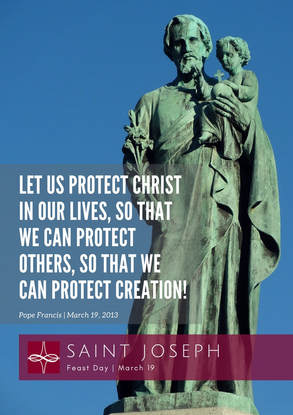 "In the Gospels, Saint Joseph appears as a strong and courageous man, a working man, yet in his heart we see great tenderness, which is not the virtue of the weak but rather a sign of strength of spirit and a capacity for concern, for compassion, for genuine openness to others, for love. We must not be afraid of goodness, of tenderness!" - Pope Francis (Homily for the Beginning of the Petrine Ministry of the Bishop of Rome, March 19, 2013) Blessings on this Solemnity of St. Joseph! As we celebrate this feast day of the Patron of the Universal Church, we also celebrate the fifth anniversary of the beginning of the Petrine ministry of Pope Francis. He chose this day particularly for this event and later inserted an invocation of St. Joseph into all the Eucharistic Prayers, not simply Eucharistic Prayer I (Roman Canon). Pope Francis not only invites us to see St. Joseph as protector of the Universal Church, but also calls us all to be protectors who live with tenderness that shows the love of Christ. What does it mean to be a "protector"? In the same homily quoted above, he offers us an answer, which he witnesses as pope. "In [St. Joseph], dear friends, we learn how to respond to God's call, readily and willingly, but we also see the core of the Christian vocation, which is Christ! Let us protect Christ in our lives, so that we can protect others, so that we can protect creation! The vocation of being a "protector", however, is not just something involving us Christians alone; it also has a prior dimension which is simply human, involving everyone. It means protecting all creation, the beauty of the created world, as the Book of Genesis tells us and as Saint Francis of Assisi showed us. It means respecting each of God's creatures and respecting the environment in which we live. It means protecting people, showing loving concern for each and every person, especially children, the elderly, those in need, who are often the last we think about. It means caring for one another in our families: husbands and wives first protect one another, and then, as parents, they care for their children, and children themselves, in time, protect their parents. It means building sincere friendships in which we protect one another in trust, respect, and goodness. In the end, everything has been entrusted to our protection, and all of us are responsible for it. Be protectors of God's gifts!" As one can see from the highlights above which link to an encyclical, two apostolic exhortations, and the bull of indiction of the Extraordinary Jubilee of Mercy, Pope Francis outlined in his inaugural homily some of the themes of the teaching of his pontificate. His actions toward those on the peripheries witness as well to how we can both protect and show tenderness, "responding to God's call" as St. Joseph did. For as he said also in his homily, "only those who serve with love are able to protect!" May the Charity of Christ urge us on! This weekend is the feast of St. Patrick—one of the most popular saints in the Archdiocese of Washington where I grew up and arguably in the entire United States. But two days later on March 19, coming much more quietly and with far less fanfare in American culture, slips in the Solemnity of St. Joseph.
It is easy to lose the Solemnity of St. Joseph in the rigors of Lenten observances or because it comes on the heels of the day-long party that seems to happen every year on St. Patrick’s Day. Perhaps we often overlook this feast because we know so little about who St. Joseph was and what his life was like. Nevertheless, St. Joseph remains an incredibly important figure, especially for parents. Joseph is mentioned only a few times in the New Testament. We know from the Gospels that Joseph was a law-abiding and righteous man, and that he obeyed God’s will—especially when it was revealed to him directly by an angel. After these few mentions in the infancy narratives of Jesus, St. Joseph gently fades into the background and then disappears altogether from the Gospels. But the Church in her wisdom has made St. Joseph’s importance clear for those who are paying attention: he is mentioned in all four Eucharistic Prayers at Mass, as well as in the Divine Praises during Benediction at the end of Eucharistic adoration. But what makes St. Joseph so special? From what we can glean from the Gospels, St. Joseph was an ordinary man of deep faith who was called to become the foster-father of Christ. He became the earthly guardian of the Messiah, responsible for his upbringing and tasked with protecting him in his early life. St. Joseph’s commitment to his vocation as the husband of Mary and the foster father of Christ was so strong that upon being warned about the murderous intentions of King Herod, he fled immediately—in the middle of the night!—to Egypt. He did whatever it took, even leaving his entire life behind him, in order to keep his family safe. The little we see of him in the New Testament shows us a devout man who always trusted in God and took care of his family. St. Joseph, as the third member of the Holy Family, is the member who is the most like us—especially those of us who are parents. He was not born sinless, nor was he divine. He was a carpenter, a man of humble station who probably felt as though he had a monumentally important task thrust upon him. I think St. Joseph’s role in Christ’s life beautifully displays the role of a Christian parent in their child’s life. Parents are ordinary people who are tasked with the care and raising of new life. Like Joseph, we do not own our children or have sole claim over them; they are their own people, entrusted to our care and guidance until they grow old enough to do God’s will without our assistance. It is a difficult task, and at times overwhelming to ponder. And yet there is St. Joseph, who was tasked with raising the very Son of God. Joseph shows us that we do not need to be perfect in our roles, only willing to be guided by God as we place our trust in Him. Just as I strive to be like Mary in my vocation as a wife and mother, I pray that my husband will be like Joseph. St. Joseph is the ultimate husband and father, a faithful man of quiet strength, protector of Mary’s virginity, and guide of Christ’s earthly childhood. Above all, St. Joseph shows us the beauty of a life lived in obedience to God’s will. Questions for Reflection: How can you grow closer to St. Joseph throughout this Lenten season? What can you learn from St. Joseph’s example of obedience and trust? Today we celebrate the fifth anniversary of Pope Francis’ pontificate. In these short years, Pope Francis has done much to continue the work of his predecessors in building a culture of evangelization and inviting each member of the Church to live out their baptismal call as missionary disciples. Several important Church documents have been released throughout his papacy, including Evangelii Gaudium, the Apostolic Exhortation on the Proclamation of the Gospel in Today’s World, Laudato Si’, the encyclical on Care for our Common Home, and Amoris Laetitia, a post-synodal Apostolic Exhortation on Love in the Family. Pope Francis has participated in two World Youth Days, made roughly 22 international apostolic visits, and has canonized 885 saints. He called for the Jubilee Year of Mercy from 2015-2016. I would like to celebrate the fifth anniversary of his election by sharing some quotes that characterize his papacy and capture its tone.
1. A Church on Mission "I prefer a Church which is bruised, hurting and dirty because it has been out on the streets, rather than a Church which is unhealthy from being confined and from clinging to its own security… More than by fear of going astray, my hope is that we will be moved by the fear of remaining shut up within structures which give us a false sense of security, within rules which make us harsh judges, within habits which make us feel safe, while at our door people are starving. -Evangelii Gaudium, 49 Pope Francis envisions a missionary church—one with open doors to welcome people in, but also for each of us to step out and bring the Good News of Jesus Christ to the world. As Christians, it can be tempting to remain within the safety of our parish and Church community. However, Jesus calls us to “go out to the nations” and encounter the hurting world. Pope Francis reminds us of this evangelizing spirit entrusted to us by Jesus Christ and challenges us to be a Church on mission. 2. The Inherent Dignity of Mankind and Creation “Our insistence that each human being is an image of God should not make us overlook the fact that each creature has its own purpose. None is superfluous. The entire material universe speaks of God’s love, his boundless affection for us. Soil, water, mountains: everything is, as it were, a caress of God.” -Laudato Si, 84 About two years into his papacy, Pope Francis released his encyclical Laudato Si’, focusing on our responsibility as stewards of creation. No other pope has dedicated an entire encyclical to the care of creation. In doing so, Pope Francis reminds us that all of the created world helps us to glimpse and better know God Himself. Mankind is the pinnacle of creation, made in God’s image and likeness. In Laudato Si’, Pope Francis reminds us of each person’s inherent dignity, made with his or her own purpose, gifts, and mission. 3. The Transformative Power of Christ’s Love “Jesus’ love goes before us, his look anticipates our needs. He can see beyond appearances, beyond sin, beyond failures and unworthiness…He sees beyond this, to our dignity as sons and daughters, a dignity at times sullied by sin, but one which endures in the depth of our soul. He came precisely to seek out all those who feel unworthy of God, unworthy of others.” – Homily at Plaza de la Revolución during his Apostolic Journey to Cuba At the heart of the Christian life is an encounter with Jesus Christ. His love is transformative, life-changing. We encounter Christ in prayer, the sacraments, the parish, in one another. However, we cannot overestimate the importance of our prayer life—of moments throughout each day in which we enter into dialogue with God, offer up our work and sacrifices, remember the needs of others, or give God praise. When we carve out time each day for prayer, we are better able to know the look of Christ that goes beyond the worldly way of seeing things into our dignity as sons and daughters of God. 4. The Role of the Church in the Christian Life "We cannot understand Christ without his Church, just as we cannot understand the Church without her spouse, Christ Jesus, who gave his life out of love, and who makes us see that it is worth the price.” -Prayer Vigil for the Festival of Families in Philadelphia I love this quote because it sums up the relationship between Christ and His Church. We cannot know Christ apart from the Church, just as the Church cannot exist without Christ. Christ founded the Church in order to be a place of encounter with Him through the sacraments and through one another. We come to more fully know the love of God in the life of each parish. How can we create communities of encounter in our various parishes? Is the light of Christ truly shining forth in our communities? 5. The Messiness and Joy of Family Life “I thank God that many families, which are far from considering themselves perfect, live in love, fulfill their calling and keep moving forward, even if they fall many times along the way. The Synod’s reflections show us that there is no stereotype of the ideal family, but rather a challenging mosaic made up of many different realities, with all their joys, hopes and problems.” -Amoris Laetitia, 57 Pope Francis speaks realistically of human life and love. The family, the domestic church, is not perfect. We are called to learn and grow in love throughout our entire lives, just as we are called to learn and grow in holiness. The family is the place where love is mastered and refined. It is the foundation of society and of the Church. Pope Francis calls families to journey joyfully on the path of love. He invites us not to fear our imperfection, but to keep moving forward in hope and joy. 6. Not Letting Fear Impact Vocational Discernment “The work of discernment identifies our fears and can then help us to overcome them, opening us to life and helping us to calmly face the challenges that come our way. For us Christians in particular, fear must never have the last word but rather should be an occasion to make an act of faith in God… and in life!” -Message for World Youth Day Panama In preparation for the 2018 Synod on Young People, the Faith and Vocational Discernment and World Youth Day 2019 in Panama, Pope Francis spoke of the process of discernment, especially for young people today. Fear is often at the heart of our actions—or inaction. Christians, however, have no cause for fear. As we discern God’s call for our life each day, let us place our trust in Him and act with courage and boldness. God has created us for a unique mission that only we can fulfill in His Church. Let us discern his will for us, as Pope Francis encourages, “trusting that he will lead us to a good end.” 7. The Importance of Contemplating and Encountering God’s Mercy “We need constantly to contemplate the mystery of mercy. It is a wellspring of joy, serenity, and peace. Our salvation depends on it.” -Misericordiae Vultus, Bull of Indiction for the Extraordinary Jubilee of Mercy Starting in 2015, Pope Francis instituted the first Jubilee Year of Mercy in the Catholic Church. Throughout this time, he invited the Church to contemplate once more the merciful gaze of the Father and experience God’s mercy in our lives. We cannot be merciful without first having personally experienced the mercy of God. I loved that as a Church, we dedicated a year to contemplating this great mystery. We know God as Father, Savior, Creator, Just Judge, and many other titles. But how often to experience His mercy, as evidenced in the parable of the Prodigal Son and in the story of Jesus meeting the Woman at the Well? 8. Our True Identity “That is our real ‘stature,’ our spiritual identity: we are God’s beloved children, always. So you can see that not to accept ourselves, to live glumly, to be negative, means not to recognize our deepest identity…God loves us the way we are, and no sin, fault or mistake of ours makes him change his mind…God counts on you for what you are, not for what you possess…In his eyes, you are precious, and your value is inestimable.” -Homily at World Youth Day Mass in Krakow At World Youth Day in Krakow back in 2016, Pope Francis reminded youth and young adults of an incredible universal truth : that our identity lies in being God’s children. In a world so often focused on our careers, material possessions, prestige, or online presence, Pope Francis gets to the heart of our identity as being completely loved by God. It’s easy to forget that we are loved simply because we exist. We all hold a valuable and irreplaceable space in God’s heart. By being most authentically ourselves, we are better able to fulfill our mission within His kingdom and become the saints He wants us to be. 9. Using Technology and Social Media Wisely “Communication has the power to build bridges, to enable encounter and inclusion, and thus to enrich society…Words can build bridges between individuals and within families, social groups and peoples. This is possible both in the material world and the digital world.” -World Day of Communication 2016 We live in a world saturated by social media, technology, and widespread communication. Used irresponsibly, these can isolate and distract mankind. Pope Francis encourages people today to use technology and social media in order to promote a culture of encounter and accompaniment. He challenges us to be “digital citizens” who are not afraid to use technology to spread the Gospel. 10. Being People “For Others” “Love has no alibi. Whenever we set out to love as Jesus loved, we have to take the Lord as our example; especially when it comes to loving the poor.” -Message for the First World Day of the Poor In 2017, Pope Francis called for the first World Day of the Poor—a day in which we act not only in word, but in deed in order to alleviate poverty and accompany those on the margins of society. Pope Francis encourages the world to give and not to count the cost, to love as God first loved us. In a culture of consumerism, we can easily forget to think about our neighbor or those less fortunate than ourselves. Pope Francis reminds us of the importance of giving freely, drawing near to the poor, embracing them, and being transformed through that process. Click here for free resources on Catholic Social Teaching. Question for Reflection: Do you have a favorite quote from Pope Francis’ papacy that’s not listed above? Share it in the comment section below and let us know why it’s powerful for you. As we continue through the Lenten season, it is natural that the newness of Lent has worn off. Maybe, if you’re like me, you have caught yourself on more than one occasion frustrated for “failing” at your Lenten plan. The reality is that Lent is not just about what we can do in terms of prayer, fasting, and almsgiving, but who we are becoming. In short, Lent is meant to teach us to love—to love in the desert, to love the daily crosses of life, and ultimately to join with Love Himself through the joy of the Resurrection. Let’s spend some time reflecting on these three types of love. To love in the desert. Even after the 30 years He spent in Nazareth, before He started His public ministry, our Lord withdrew to the desert by Himself for 40 days to pray, fast, and prepare for his mission. And as He did, we must also do. If we can encounter the love of God in the solitude of our hearts and in the quiet of prayer with Him, we will be better equipped to be able to share His love with the world. Time spent with God in the desert enables us to go out on mission. Lent reminds us—even in the deserts—that God is faithful through it all. To love the crosses. A few weeks ago, a wise priest told me to not just carry my cross, but pray for the grace to also love the cross. I’ll be honest, I shrugged the advice off initially. I don’t think I’m alone: it’s natural for us to struggle with our crosses and wonder why the Lord allows them to happen. But the beauty of Lent is that our prayer, fasting and almsgiving can allow our hearts to grow in this grace, be transformed by our crosses, and even come to love them. Let us meditate on the Passion of Christ throughout the Lenten season, asking Christ to help us embrace our cross in order to join Him in the glory of His Resurrection. To join with Love Himself. The good news for us is that the Christian life was never meant to be lived alone. For this reason, Christ instituted the Church in the Upper Room after his Resurrection. When we unite ourselves and our sufferings with the Body of Christ, we are not only participating in the mission of Lent, but the mission of our lives as Christians. We are called to build one another up throughout our lives of faith, including offering our prayers and sacrifices for the benefit of the Church. That being said, the point of these 40 days is not just to journey with each other, but towards Christ. He is our greatest mission partner, our chief example, and the cause for our joy. To join with Love Himself is the great adventure of Lent and to share in the joy of the resurrection is our great privilege as Christians. May He find us worthy this Lent of learning to love like Him. Questions for Reflection: How is your Lenten journey going thus far? Have you been able to keep your Lenten commitments of prayer, fasting, and almsgiving? Take a few moments to reflect on how you’re growing this Lent. For more resources to guide you along your Lenten journey, click here. Communicating in an audio format is nothing new. During and after World War I, radio transformed communication in households and across battlefields. Speeches, reporting, and entertainment also utilized this medium for many different audiences and purposes. The Catholic Church has taken advantage of developments in audio communication in order to transmit homilies, catechesis, and words of encouragement for almost a century, the long standing Vatican Radio being one example. Now in the 21st century, a new medium of audio evangelization has formed in the lexicon and zeitgeist: podcasting. A portmanteau for iPod and broadcasting, podcasts are audio files that can be downloaded and listened to. They have reinvigorated the audio sphere for the digital age, with thousands of podcasts and hundreds of hours of content being created every day. What does that mean for Catholics trying to evangelize and move people to mission? How should we as a Church approach new media and new methods of communication?
Many Catholics are trying to answer that question in a variety of ways. During the World Day of Communication in 2014, Pope Francis encouraged the Church to “boldly become citizens of the digital world.” He continued, “The Church needs to be concerned for, and present in, the world of communication, in order to dialogue with people today and to help them encounter Christ.” Over the past year, the Catholic Apostolate Center has created podcasts in an effort to evangelize and help others encounter Christ. We started by recording some of our most popular blog posts for people to listen to “on the go,” and we are now launching a new podcast initiative called “On Mission” to discuss important themes and topics for Catholics today. (Keep an eye on www.catholicapostolatecenter.org/podcasts for the forthcoming launch of this series.) How do we view podcasts as a moment of evangelization? Like any other video, writing, or audio, podcasts enable us to be prophetic witnesses to the faith in a way that’s approachable and encounters people where they are. I think that if we approach podcasts as Archbishop Fulton Sheen approached television over 50 years ago, we will be responding to Christ’s command to “go out to all the nations” and evangelize. Archbishop Sheen used a new medium of communication for the glory of God. Today, podcasts are just one tool we can use in order to more effectively spread the Gospel message. In many ways, Pope Francis is calling all people to engage in this sort of witness of the faith by utilizing the means of communication at their disposal. During the World Day of Communication in 2014, he remarked on the importance of using media to inspire moments of encounter and to increase solidarity. He said, “In a world like this, media can help us to feel closer to one another, creating a sense of the unity of the human family which can in turn inspire solidarity and serious efforts to ensure a more dignified life for all. Good communication helps us to grow closer, to know one another better, and ultimately, to grow in unity.” At the Catholic Apostolate Center, we aim to use the various means of communication at our disposal for that very purpose: to create a sense of unity within the Church and also in the world. How beautiful would it be if all members of the Body of Christ were to be this peaceful and harmonious? It is my belief that we can, as was done with radio or television, offer this sort of peaceful accompaniment to another generation of evangelizers. I would like to conclude with a prayer written by Pope Francis that was inspired by the prayer of peace attributed to St. Francis: “Lord, make us instruments of your peace. Help us to recognize the evil latent in a communication that does not build communion. Help us to remove the venom from our judgements. Help us to speak about others as our brothers and sisters. You are faithful and trustworthy; may our words be seeds of goodness for the world: where there is shouting, let us practice listening; where there is confusion, let us inspire harmony; where there is ambiguity, let us bring clarity; where there is exclusion, let us offer solidarity; where there is sensationalism, let us use sobriety; where there is superficiality, let us raise real questions; where there is prejudice, let us awaken trust; where there is hostility, let us bring respect; where there is falsehood, let us bring truth. Amen.” Questions for Reflection: What are some examples you’ve seen of using media positively in order to build communion? Can you think of others in which media or technology created isolation? How is God calling you to use the tools at your disposal in order to share the Gospel? To listen and subscribe to our latest podcasts, please click here. As I was reflecting on the importance of the Lenten journey, it occurred to me that the forty days Jesus spent in the desert were Christ’s training and preparatory period for His life of ministry. By entering into the desert to pray and fast, our Savior was preparing Himself in body and soul to enter into His public mission. We too are called into a time of spiritual preparation to grow in holiness and become followers of Christ sent on mission. Lent helps us to do this by inviting us to focus on prayer, fasting and almsgiving. Because we are personally called to be stewards of Christ’s work on earth, we each have a special vocation that plays an important role in salvation history. Our Lord, in His humanity, demonstrated for us the importance of preparing for our calling. Let’s take a moment to look at the temptations presented to Jesus in the desert and to reflect on how they may relate to our present life and Lenten journey.
The First Temptation: Hunger “The devil said to him, ‘If you are the Son of God, command this stone to become bread.’” (Luke 4:3) Let’s look at hunger from both a physical and spiritual dimension. Are we respecting our physical hunger by providing our body with appropriate nourishment through a well-balanced diet? Our bodies have been fashioned by our Divine Creator. Are we respecting that gift? Learning to discern the various signs that our body sends us is an important step in growing in discipline. We can strengthen, energize, and nourish our physical selves in a way that will enable us to carry out our calling. When we ignore this area of challenge and growth, we fail to establish a sense of physical discernment and our fallen desires become the master of our selves. Throughout Lent, we are invited to abstain from certain things, like meat on Fridays. This helps us to grow in healthy self-denial and invites us to make sacrifices that free us to more intentionally satisfy our spiritual hunger. When looking at spiritual hunger, do we even acknowledge that this desire exists? Are we aware of it? We cannot live without God. Oftentimes, it can be tempting to focus more on satisfying our physical needs than our spiritual needs. Lent is a wonderful time to focus on satisfying our spiritual hunger for God. Can we discern a spiritual versus physical desire? Are we turning to good, Christian practices to help us sustain our spiritual bodies or are we starving them? Do we nourish our soul with Scripture and frequent reception of the sacraments or do we drown this desire in the noise of daily life? The Second Temptation: Power “Then he took him up and showed him all the kingdoms of the world in a single instant. The devil said to him, ‘I shall give to you all this power and their glory; for it has been handed over to me, and I may give it to whomever I wish. All this will be yours, if you worship me.’” (Luke 4: 5-7) In this temptation, the devil offers Jesus thrones and dominions, the powers of the world. Jesus knew that all powers belonged to His Father in heaven, and that all human power is a gift from God. On Ash Wednesday, we often hear the words, “Remember you are dust, and to dust you shall return.” Lent reminds us of our humble origin and our final end. It invites us to grow deeper in our humility and on our reliance on God, who elevates us to His sons and daughters through Baptism and invites us to eternal life with Him. What powers or successes are we tempted by in our lives? Are they disordered? Let us reflect on the things in our lives that we cling to, strive for, or attempt to control. Is there anything God is asking us to hand over that we can give Him this Lent? Have our goals become idols in our life? What false power have we been blinded by that has taken worship away from our Almighty and Triune God? The Third Temptation: Putting God to The Test “Then he led him to Jerusalem, made him stand on the parapet of the temple, and said to him, ‘If you are the Son of God, throw yourself down from here…’” (Luke 4: 9-10) In this temptation, the devil challenges God’s authority and invites Jesus to test God’s power. What are the ways in which we test our Heavenly Father? Do we only turn to God in times of need or instead seek His guidance in all circumstances in life? There is a very important difference between throwing ourselves down in order to see if we’ll be caught versus allowing ourselves to fall, trusting that we’ll be held. Our relationship with our Heavenly Father should not be one of testing, but of trusting. By refusing to give in to the devil’s temptation, Jesus models for us trust, obedience, and faith—what Adam and Eve lacked when they experienced temptation in the Garden of Eden. As we continue through our Lenten journey, may we open ourselves to a deep and honest reflection of these temptations and remember that Christ has already overcome our greatest enemy: the devil. Our Savior, who is fully God and fully man, entered into a time of preparation to discipline and strengthen the physical in order to allow the spiritual to grow and develop. Christ shows us the way against temptation and gives us the strength to overcome it, knowing that the Father of Lies will be waiting with his temptations and tricks to stop us from fulfilling our role in salvation history. During Lent, let us continue to prepare for our call and, strengthened by the powers of heaven and Jesus Christ Himself, not allow the temptations of the Evil One to stand in our way. Questions for Reflection: What are your greatest temptations during Lent? What are some ways you have been able to overcome temptation? Click here for more resources to guide you throughout your Lenten journey. |
Details
Archives
July 2024
Categories
All
|
About |
Media |
© COPYRIGHT 2024 | ALL RIGHTS RESERVED

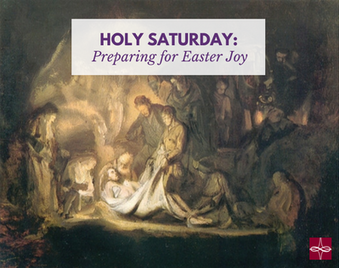

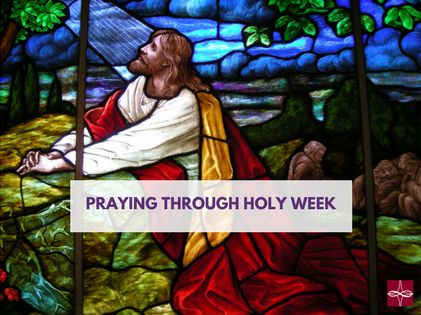

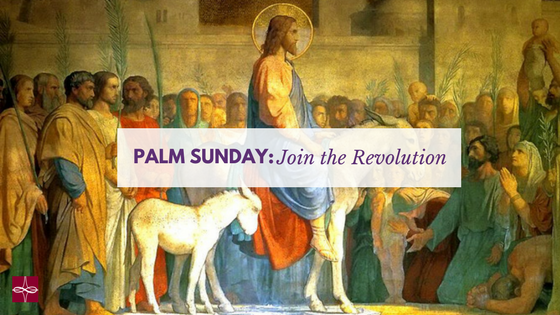

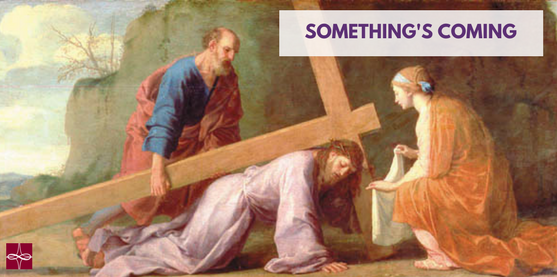

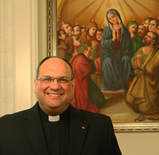
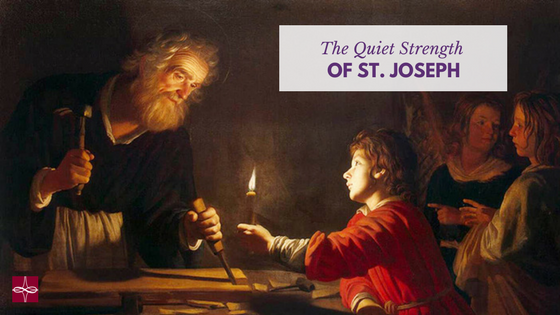

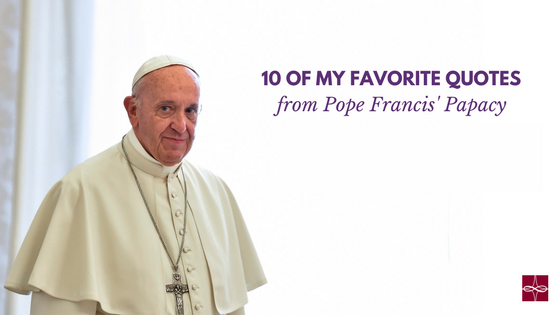

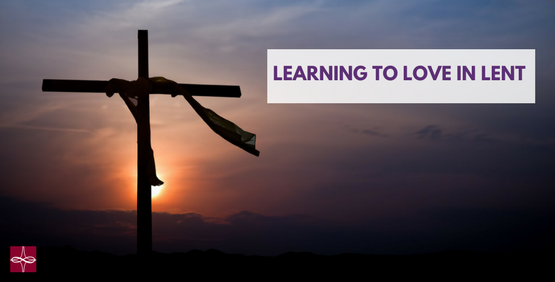



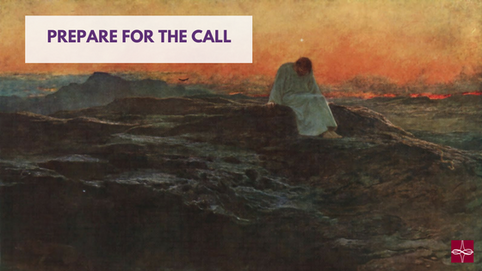

 RSS Feed
RSS Feed